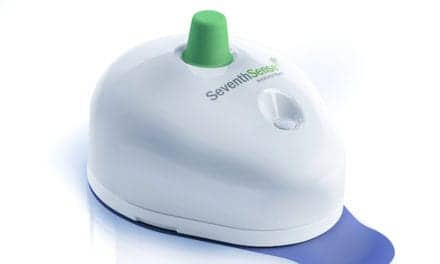A liquid biopsy technology from Personal Genome Diagnostics (PGDx), Baltimore, has successfully detected microsatellite instability (MSI) in circulating tumor DNA (ctDNA), according to a new study.1 The detection capability enables doctors to estimate the likelihood of both an immediate and durable response to immune checkpoint blockade therapy in cancer patients with MSI.
The study results point to the value of liquid biopsies as a noninvasive approach to genotyping and monitoring patients diagnosed with advanced forms of cancer. Researchers from PDGx, Johns Hopkins University, and Memorial Sloan Kettering Cancer Center, among other institutions, contributed to the study.
“Microsatellite instability and high tumor mutation burden (TMB) are promising pan-tumor biomarkers that are used to identify patients who may be candidates for treatment with immune checkpoint blockade,” says John Simmons, PhD, vice president for translational medicine at PGDx. “Obtaining samples via tumor biopsy can be challenging in people with advanced cancer, so this liquid biopsy test is a tool that can help doctors select the best therapy for their patients.”
Microsatellite instability was the first pan-cancer biomarker approved for determining treatment with the immune checkpoint inhibitor pembrolizumab. In liquid biopsy testing, MSI status can be determined by evaluating the level of circulating tumor DNA in a patient’s plasma sample. The recent study found that ctDNA testing can also help doctors monitor patient response to treatment and identify earlier when a therapy is no longer effective.
“Our study further demonstrates that ctDNA is a more rapid and dynamic method to determine response to therapy, and in particular to immune checkpoint blockade, in comparison with a protein biomarker or radiographic imaging,” says Andrew Georgiadis, senior scientist at PGDx and first author of the study.
Study investigators developed a novel, highly sensitive and specific analytic method to identify MSI in ctDNA. For patients treated with PD-1 blockade, researchers demonstrated that detection of MSI and a high level of TMB in pretreatment plasma predicted progression-free and overall survival (hazard ratios 0.21 and 0.23, p=0.001 and 0.003, respectively). Additionally, analyzing cfDNA from longitudinally collected plasma samples obtained during therapy identified patients who achieved durable response to PD-1 blockade therapy.
PGDx’s commitment to increasing patient access to genomic testing options is centered on development of the company’s Elio portfolio—kitted products that integrate optimized chemistry with automated bioinformatics for comprehensive tissue-based and liquid biopsy genomic profiling in molecular laboratories worldwide. Earlier this year, PGDx announced the CE marking of Elio plasma resolve, bringing a local, noninvasive testing option to cancer patients in Europe. PGDx has received breakthrough device designation from FDA for Elio plasma resolve, based on the assay’s ability to detect MSI status in plasma as an aid in selecting patients for certain therapies.
For additional information, visit Personal Genome Diagnostics.
Reference
- Georgiadis A, Durham JN, Keefer LA, et al. Noninvasive detection of microsatellite instability and high tumor mutation burden in cancer patients treated with PD-1 blockade. Clin Cancer Res. Published online first, September 10, 2019; doi: 10.1158/1078-0432.ccr-19-1372.







